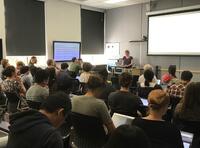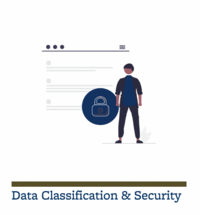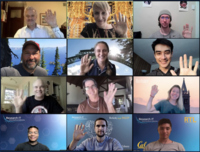

Welcome to the special Spring 2024 issue of the Research IT newsletter. We hope you learn about some of the many ways we support research across the UC Berkeley campus and beyond. In this issue, we are highlighting our consulting program as it is one of the primary ways we bridge campus technologies and the people who use them. We look forward to learning about your research and finding the most effective ways to collaborate with you.
Empowering Researchers, Fueling Innovation

The UC Berkeley Research IT Consulting team plays a crucial role in empowering the university's diverse research community. This group, composed of experts from diverse backgrounds, serves as a point of contact for researchers seeking to use computing and data resources. By understanding the needs of Berkeley’s research community, the consulting team facilitates easier access to these tools, allowing researchers to make advancements in their work. In the linked article, we’ll explore the core responsibilities of the consulting team, and the valuable contributions of one of the domain consultants, Christian White, who is leveraging his expertise to uplift the research community at UC Berkeley.
Read more about Research IT consulting(link is external)
One Million Records and Counting
 Through meticulous efforts spanning decades, students and staff have brought to light a wealth of botanical knowledge at the University and Jepson Herbaria(link is external), unlocking insights into evolution, distribution, and biodiversity. Most recently, the museum made the remarkable achievement of adding the one millionth record to its digital collection. As the herbaria embarks on recording the next million specimens, they pave the way for future generations to explore and understand our natural world, bridging the past to the present and beyond.
Through meticulous efforts spanning decades, students and staff have brought to light a wealth of botanical knowledge at the University and Jepson Herbaria(link is external), unlocking insights into evolution, distribution, and biodiversity. Most recently, the museum made the remarkable achievement of adding the one millionth record to its digital collection. As the herbaria embarks on recording the next million specimens, they pave the way for future generations to explore and understand our natural world, bridging the past to the present and beyond.

Savio Tips and Tricks: Making the Most of the Slurm Scheduler and of Installing/Using Software in Mamba/Conda Environments
 TODAY! April 18 | 3:40-5pm | Hybrid format via Zoom or in-person at the Academic Innovation Studio in Dwinelle Hall
TODAY! April 18 | 3:40-5pm | Hybrid format via Zoom or in-person at the Academic Innovation Studio in Dwinelle Hall This intermediate-level training will discuss two topics in depth. First, we’ll discuss how the Slurm scheduler works and how to use it effectively to get your jobs to run as quickly as possible, including jobs that use parallelized code and jobs that use GPUs. Second, we’ll discuss the use of Conda (and Mamba) to install software (including, but not limited to, Python packages) in a reproducible and isolated fashion.For both topics we’ll cover a variety of tips and tricks that will help you better use Savio and similar HPC systems.
Cybersecurity for Researchers
This brown bag session will focus on secure campus tools and services that Research IT and Berkeley IT offer to researchers, tips on navigating campus security processes, and cybersecurity best practices for keeping your research and research subjects safe.
In partnership with the UC Berkeley Information Security Office and Industry Alliances Office.
Check our Events & Training page for more information about this and other upcoming events.

Open OnDemand
 Open OnDemand is the next generation way of accessing high performance computing resources. While traditionally high performance computing has required using the command line or specialized software, now you can login with your web browser and quickly access the files, view your jobs, and start interactive sessions like Jupyter, RStudio, and VS Code. New users will appreciate the simple, straightforward interface. Experienced users will appreciate the portability, fast setup for interactive jobs, and the command line is just one click away without the need to log in again and again.
Open OnDemand is the next generation way of accessing high performance computing resources. While traditionally high performance computing has required using the command line or specialized software, now you can login with your web browser and quickly access the files, view your jobs, and start interactive sessions like Jupyter, RStudio, and VS Code. New users will appreciate the simple, straightforward interface. Experienced users will appreciate the portability, fast setup for interactive jobs, and the command line is just one click away without the need to log in again and again.
Securing Research Data
 One of the key areas in which Research IT supports campus research is connecting research data to appropriately secure research technologies. Questions about how to classify research data, and how that informs securing research data, often start with the Research Data Management (RDM) Program(link is external). During a consultation, information is gathered about the research data in question such as: types of data being collected/generated, where data is/will be stored, and who needs to access the data. From there, we aim to connect researchers and/or research groups to secure platforms supported by Research IT - such as Secure Research Data and Compute (SRDC), REDCap, or Savio depending on the research needs - or refer them to other campus services and/or platforms that can support their research.
One of the key areas in which Research IT supports campus research is connecting research data to appropriately secure research technologies. Questions about how to classify research data, and how that informs securing research data, often start with the Research Data Management (RDM) Program(link is external). During a consultation, information is gathered about the research data in question such as: types of data being collected/generated, where data is/will be stored, and who needs to access the data. From there, we aim to connect researchers and/or research groups to secure platforms supported by Research IT - such as Secure Research Data and Compute (SRDC), REDCap, or Savio depending on the research needs - or refer them to other campus services and/or platforms that can support their research. Status & Service Updates
 The best way to stay updated on the latest status and updates for the Research IT services is on the front page of the Research IT website. If you are having issues or unsure if one of our services is down, check there first before sending us a ticket.
The best way to stay updated on the latest status and updates for the Research IT services is on the front page of the Research IT website. If you are having issues or unsure if one of our services is down, check there first before sending us a ticket. Documentation
 Research IT understands that using a supercomputer like Savio can sometimes be super difficult; however, our goal is to make your research computing as simple and painless as possible. For that reason, we’ve put the documentation and user guide into a user-friendly website. If you’re getting started and need to know how to get an account and what resources you can access, we’ve got you covered. If you’re an existing user, we have support articles to explain how to get your code running on the Savio cluster's compute nodes, along with the best practices for doing so. If you hit a speed bump, be sure to check out our FAQ page for answers to common questions and issues. For visual learners, we have training videos. If you’re stuck, our getting help page lays out how to get in touch. Lastly, if you’re having a data issue, we have documentation that covers research data management and secure research data computing.
Research IT understands that using a supercomputer like Savio can sometimes be super difficult; however, our goal is to make your research computing as simple and painless as possible. For that reason, we’ve put the documentation and user guide into a user-friendly website. If you’re getting started and need to know how to get an account and what resources you can access, we’ve got you covered. If you’re an existing user, we have support articles to explain how to get your code running on the Savio cluster's compute nodes, along with the best practices for doing so. If you hit a speed bump, be sure to check out our FAQ page for answers to common questions and issues. For visual learners, we have training videos. If you’re stuck, our getting help page lays out how to get in touch. Lastly, if you’re having a data issue, we have documentation that covers research data management and secure research data computing.
 Research IT has a diverse team of expert consultants from across disciplines that can help with your data and computing questions related to your research.
Research IT has a diverse team of expert consultants from across disciplines that can help with your data and computing questions related to your research.
Join us during our virtual office hours on Wednesdays from 1:30 - 3pm and Thursdays from 9:30 - 11am. You can also reach out to us anytime via email at research-it-consulting@berkeley.edu(link sends e-mail)
